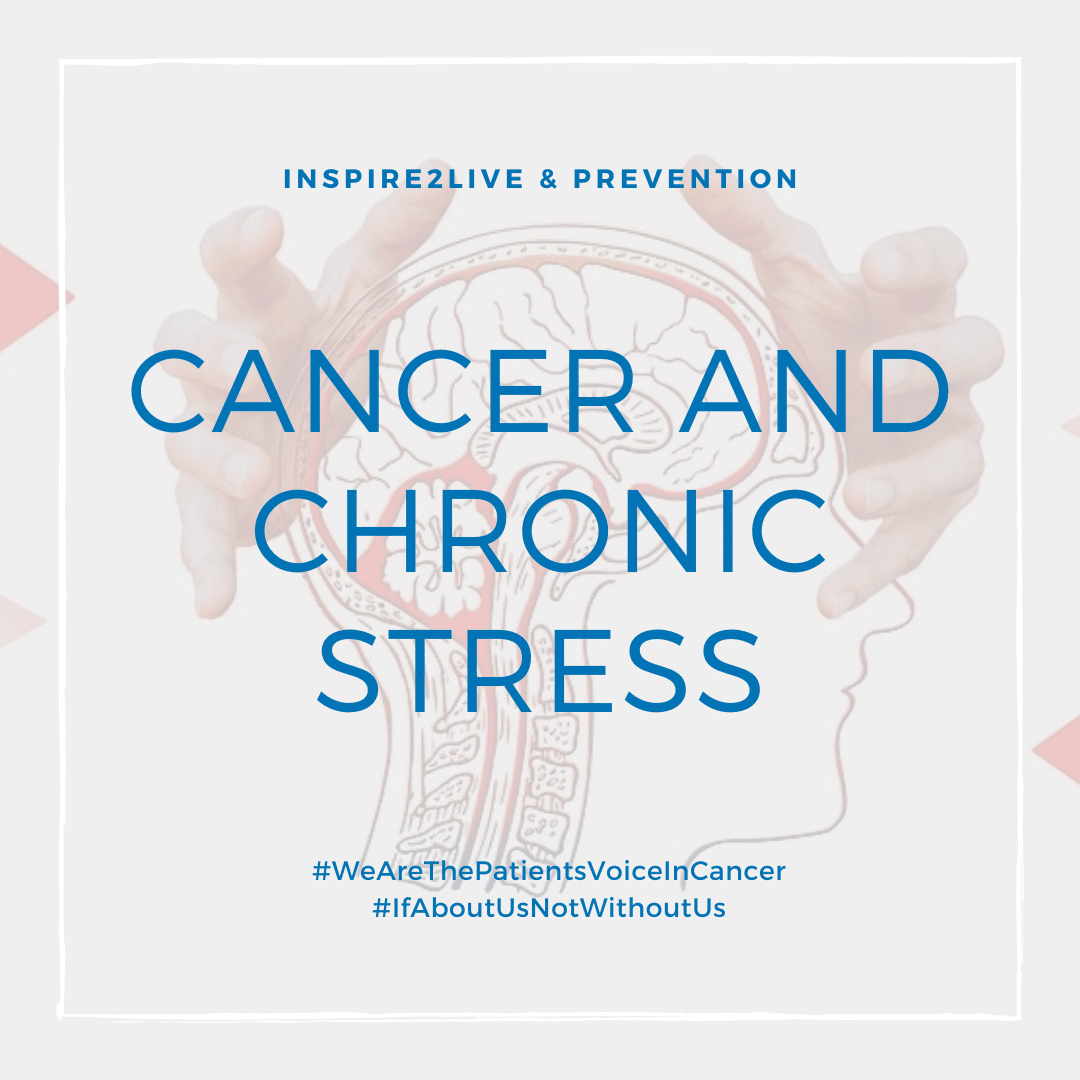Psychological stress is what we feel when we are under mental, physical, or emotional pressure. Stress is not always a problem, some level of stress can be beneficial in situations that require our full attention, or in case we need to escape danger. The issue is when this stress becomes intense and constant over a longer period of time, when we are unable to relax once the stressor is gone, or when this condition lasts for a long period of time, then we are dealing with chronic stress, and that is a problem.
As you may know, stress can cause several physical health problems, but what about cancer? Some studies have indicated a link between various psychological factors and an increased risk of developing cancer. Apparent links between psychological stress and cancer could arise in several ways. The article “Chronic Stress Promotes Cancer Formation” published in 2020, highlights the most recent advances in research on the 2 main molecular pathways through which chronic stress promotes cancer development:
“Chronic stress activates the neuroendocrine system (HPA axis) and the sympathetic nervous system (SNS) and leads to a decline and dysfunction of the prefrontal cortex and the hippocampus. Stress hormones produced during the activation of both the HPA axis and the SNS can promote tumorigenesis and cancer development through a variety of mechanisms. Chronic stress can also cause corresponding changes in the body’s immune function and inflammatory response, which is significant because a long-term inflammatory response and the decline of the body’s immune surveillance capabilities are implicated in tumorigenesis.” [1]
Although health professionals are still debating whether stress actually causes cancer, it is evident that it promotes the growth and spread of several types of cancer. “Stress makes your body more hospitable to cancer and has a significant influence on how your body’s systems work,” says Lorenzo Cohen, Ph.D., professor of General Oncology and Behavioral Science and director of MD Anderson’s Integrative Medicine Program. [2]
An issue worth mentioning is that people who do not handle stress well tend towards certain behaviors, such as smoking, overeating, or drinking alcohol, which increase a person’s risk for cancer.
What can we do?
Stress management is essential for both healthy people and cancer patients, but many times we cannot avoid stress, so the important thing is to be able to manage it, that is the secret. The main approaches to stress management include:
- Learn or practise skills such as task prioritization and time management.
- Learn to improve your awareness and your emotional reaction, this will increase your sense of control.
- Cultivate gratitude and optimism (this is not achieved overnight, it is a matter of practice).
- Practise relaxation techniques such as yoga, meditation, tai chi or mindfulness.
- Take care of your interpersonal relationships.
- Sleep! Quantity and quality are both important.
- Get regular physical activity.
- Breathe! We tend to breathe poorly, pay attention to that. There are many breathing technique tutorials available online.
- Identify what things or activities give you pleasure and try to include them in your life.
- Take personal time where you focus on yourself.
- Pay attention to your handling of social media and try to disconnect from time to time.
Maria Chacón
Patient Advocate Inspire2Live
References
- https://www.ncbi.nlm.nih.gov/pmc/articles/PMC7466429/
- https://www.mdanderson.org/publications/focused-on-health/how-stress-affects-cancer-risk.h21-1589046.html

